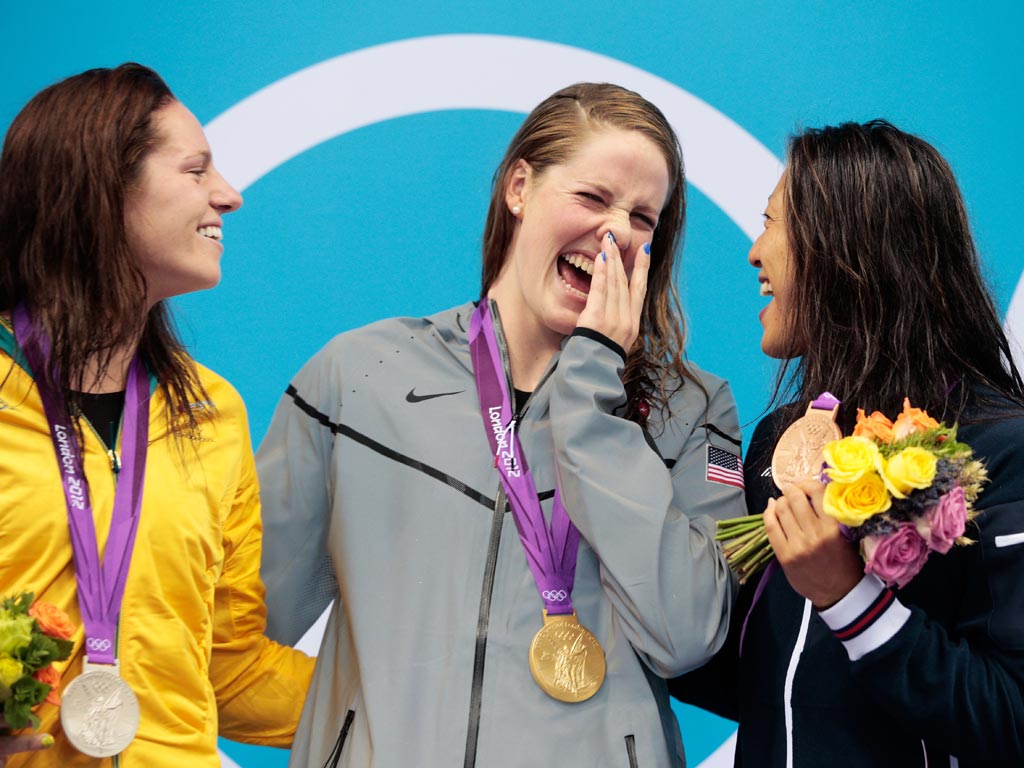The Independent's journalism is supported by our readers. When you purchase through links on our site, we may earn commission.
Lack of government funding blamed for poor Olympics for Australia

Your support helps us to tell the story
From reproductive rights to climate change to Big Tech, The Independent is on the ground when the story is developing. Whether it's investigating the financials of Elon Musk's pro-Trump PAC or producing our latest documentary, 'The A Word', which shines a light on the American women fighting for reproductive rights, we know how important it is to parse out the facts from the messaging.
At such a critical moment in US history, we need reporters on the ground. Your donation allows us to keep sending journalists to speak to both sides of the story.
The Independent is trusted by Americans across the entire political spectrum. And unlike many other quality news outlets, we choose not to lock Americans out of our reporting and analysis with paywalls. We believe quality journalism should be available to everyone, paid for by those who can afford it.
Your support makes all the difference.Australian Olympic Committee president John Coates blames the failure of his country's athletes to achieve the expected gold-medal success from the London Games on a shortage of government funding and a lack of compulsory sport in schools.
Australia finds itself 24th on the games medals tally at the end of the ninth day of competition, with only one gold medal, 12 silver and seven bronze. Neighboring New Zealand, with less than a fifth of Australia's population, was 14th with three gold medals.
The failure of Australia's swimmers to provide impetus for a gold medal rush led Coates today to downgrade his London medal expectations from 46 to between 30 and 36 - ruling out a predicted top-five finish.
Australian swimmers won only one gold medal — in a relay — six silver and three bronze for the country's lowest Olympic medal tally in swimming since Barcelona in 1992. Australia also failed to win an individual medal in swimming for the first time since 1972.
Speaking to Australian Broadcasting Corp. radio from London, Coates said with strong performances in sailing and cycling, Australia might still finish as high as eighth on the medal tally, but a top-five finish was no longer realistic.
"If you analyze it, it is only in swimming that we are disappointed in the number of medals," he said. "In Beijing we got 46 medals of which 20 were in swimming.
"We have 10 here, so realistically we are not going to get 46 medals — 30 to 36 is more likely."
The most senior Australian member of the International Olympic Committee, former Olympian Kevin Gosper, told ABC the failure to win gold medals resulted directly from cuts to government funding of Olympic sports in 2009.
The Australian government allocated nearly $325 million to sports programs in its 2010 budget, but the $52 million earmarked for Olympics-focused high performance sports was only half what the AOC had lobbied for.
Gosper, a former IOC vice president and current chairman of the IOC Press Commission, said more had to be spent on top coaches and on international competition to ensure Australian athletes were competitive at future games.
"Now that really cost us," he said. "You've got to put money in there. That pays for coaches, it pays for international competition.
"The money is the difference between silver and gold."
Coates also laid blame at the feet of the government, saying it needed to change policy and priorities to ensure funding was available for sport in schools.
"Perhaps the area that needs a lot of attention ... and government intention in terms of policy is getting sport back into the school curricula," he said.
"The British are making a big thing of that being one of the legacies they're looking towards and they've been achieving that, a greater emphasis on sport in schools.
"We need that because we've got to make sure we have a talent pool."
Federal Sports Minister Kate Lundy told ABC from London that Australian athletes were still up with the best and the world, but that the difference between gold and silver was miniscule and Australia was coming "so close so many times."
"It's a millimeter or a millisecond and it's just not going our way," she said. "I don't think that diminishes the achievements of our silver medalists. They're on the podium. We're still up there with the best of the best."
Lunday said the success of Australia's high performance sports programs would likely be examined after the games but "there's no one piece of our sports system that's broken."
While Australia's lean medal count has led to national soul-searching, New Zealand has been able to celebrate three early medals in rowing. On a medal table based on national population New Zealand, with just over four million citizens, would be in first place ahead of Slovenia.
AP
Join our commenting forum
Join thought-provoking conversations, follow other Independent readers and see their replies
Comments